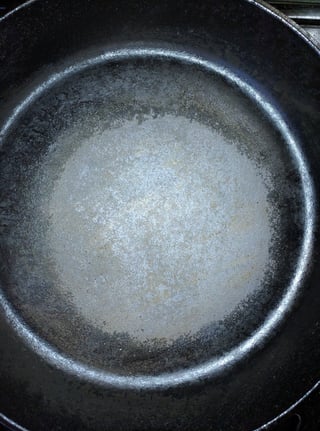As Jolene linked to in comments, one can certainly burn off cast iron seasoning at a high enough temperature. The exact temperature where it will begin to disintegrate depends on exactly what the seasoning layer is like (composition of oils etc. used to treat it, thickness and number of layers, how thoroughly the oils may have been polymerized, etc.).
Depending on the exact seasoning layer composition and thickness, you'll see a number of different possible scenarios -- the layer could effectively "evaporate off" mostly through smoke, it could flake and degrade, and/or it could turn into a layer of powdery ash (sort of like what one sees after a self-cleaning oven cycle).
There's a lot of kitchen "lore" surrounding cast iron seasoning, even on websites that claim to be based on "science." Everybody has their favorite seasoning methods and materials. So, I'm really not certain of all the chemical details here. But my personal experience is that a "young" seasoning that is rarely or never heated very hot is more likely to "smoke off." A very old seasoning that is quite thick will often leave ash residue (and will require a higher temperature to strip down to bare iron).
No matter how good your seasoning is, though, it will be destroyed by heat long before you get close to damaging the actual iron structure of the pan. There's an old traditional method of stripping seasoning off a cast iron pan that involves throwing the pan into a hot campfire. So this is a very old practice.

